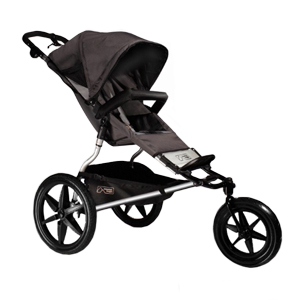In today’s fast-paced world, where material possessions often take precedence over personal well-being, the concept of reducing consumption for the sake of overall wellness is gaining momentum. As individuals seek greater fulfillment and meaning in their lives, they are turning towards minimalist lifestyles and mindful consumption practices. In this article, we explore the intricate relationship between complete well-being and reduced consumption, and how embracing simplicity can lead to a more fulfilling existence.
Introduction to Well-being and Consumption
Defining Well-being
Well-being encompasses not only physical health but also mental, emotional, and social aspects of a person’s life. It is the state of being comfortable, healthy, and happy, both individually and collectively.
Understanding Consumption Patterns
Consumption refers to the utilization of goods and services by individuals and societies. In modern society, consumption has become synonymous with materialism and excess, often at the expense of personal well-being and environmental sustainability.
The Relationship Between Well-being and Consumption
Impact of Consumption on Well-being
Excessive consumption has been linked to various negative consequences on well-being, including stress, anxiety, and depression. The relentless pursuit of material possessions can lead to a sense of emptiness and dissatisfaction, as individuals seek happiness in external sources.
Effects on Mental Health
Studies have shown that high levels of materialism are associated with poorer mental health outcomes. The constant desire for more possessions can result in feelings of inadequacy and low self-esteem, perpetuating a cycle of consumption as individuals attempt to fill the void within themselves.
Strategies for Reducing Consumption
Embracing Minimalism
Minimalism is a lifestyle choice characterized by simplicity, intentionality, and focus on the things that truly matter. By decluttering their lives and prioritizing experiences over possessions, individuals can cultivate a greater sense of contentment and fulfillment.
Practicing Mindful Consumption
Mindful consumption involves being conscious of the environmental and social impact of our purchasing decisions. By opting for sustainable products and supporting ethical businesses, individuals can align their consumption habits with their values and contribute to positive change.
Setting Boundaries
Establishing boundaries around consumption, such as limiting screen time, practicing delayed gratification, and avoiding impulse purchases, can help individuals regain control over their lives and reduce the influence of consumer culture.
Benefits of Reducing Consumption on Well-being
Improved Mental Health
By simplifying their lives and focusing on the things that truly matter, individuals can experience reduced stress, anxiety, and depression. Embracing a minimalist mindset allows for greater clarity of thought and increased resilience in the face of life’s challenges.
Enhanced Fulfillment and Satisfaction
Rather than deriving happiness from material possessions, individuals who prioritize experiences and relationships report higher levels of satisfaction and fulfillment. By investing in meaningful connections and personal growth, they create a more meaningful and purposeful existence.
Positive Impact on the Environment
Reducing consumption not only benefits individual well-being but also contributes to environmental sustainability. By consuming less and making more conscious choices, individuals can minimize their ecological footprint and help preserve the planet for future generations.
Case Studies and Examples
Individuals Who Have Embraced Minimalism
From renowned author Marie Kondo to everyday individuals documenting their minimalist journeys on social media, there are countless examples of people who have found greater happiness and freedom through minimalism.
Companies Promoting Sustainable Consumption
A growing number of businesses are recognizing the importance of sustainability and incorporating eco-friendly practices into their operations. From sustainable fashion brands to zero-waste grocery stores, these companies are leading by example and inspiring others to make more conscious choices.
Challenges and Obstacles
Social Pressures and Societal Norms
In a society that glorifies consumerism and equates possessions with success, individuals may face resistance when attempting to adopt a minimalist lifestyle. Overcoming societal expectations and peer pressure can be challenging but ultimately rewarding.
Overcoming Consumerism Mindset
The pervasive influence of advertising and marketing can make it difficult to resist the temptation to constantly upgrade and acquire new possessions. Breaking free from the consumerism mindset requires self-awareness, discipline, and a willingness to challenge societal norms.
Practical Tips for Implementing Change
Setting Realistic Goals
Start small and focus on making incremental changes that align with your values and priorities. Whether it’s decluttering your home, reducing your carbon footprint, or simplifying your daily routine, set achievable goals that you can build upon over time.
Building Habits Gradually
Changing ingrained habits takes time and patience. Instead of trying to overhaul your entire lifestyle overnight, focus on developing new habits and routines gradually. Consistency is key, so make a commitment to prioritize well-being and sustainability in your daily life.
Finding Support and Accountability
Surround yourself with like-minded individuals who share your values and goals. Whether it’s joining a minimalist community, participating in sustainability initiatives, or seeking support from friends and family, having a support system can help you stay motivated and accountable.
Measuring Success
Tracking Progress
Keep track of your consumption habits and monitor how they align with your goals and values. Use tools such as budgeting apps, habit trackers, or journaling to document your progress and reflect on your journey towards greater well-being and reduced consumption.
Celebrating Milestones
Celebrate your achievements and milestones along the way, no matter how small. Whether it’s reaching a savings goal, decluttering a room, or successfully implementing a new sustainable habit, acknowledge your progress and reward yourself for your efforts.
Conclusion
In conclusion, the pursuit of complete well-being is intricately linked to reducing consumption and embracing a more minimalist lifestyle. By prioritizing experiences over possessions, practicing mindful consumption, and challenging societal norms, individuals can cultivate greater happiness, fulfillment, and sustainability in their lives.


